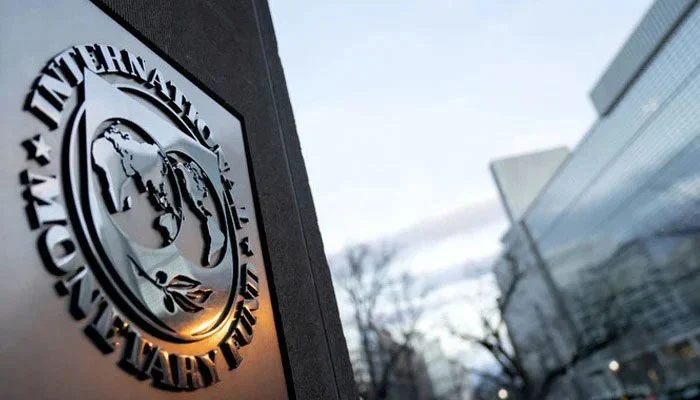IMF rules out global recession despite US tariff shock

Speaking on Thursday, IMF Managing Director Kristalina Georgieva said the current climate is a test for international cooperation and sensible policy.
The International Monetary Fund (IMF) has dismissed fears of a global recession, even as uncertainty surrounding international trade policies intensifies.
The global body acknowledged that recent tensions, particularly following fresh tariffs introduced by the United States, have rattled markets and shaken investor confidence.
However, it emphasized that although the outlook for global growth has worsened, a recession is not expected.
In its latest forecast, the IMF noted that worldwide stock prices have declined as trade disputes escalate, warning that the rising mistrust among countries could cause long-term damage.
"Our new growth projections will include notable markdowns, but not recession," the IMF stated, indicating a more cautious yet still hopeful outlook.
The concerns follow US President Donald Trump’s recent tariff announcement on 2 April, referred to as "Liberation Day" tariffs, which have drawn global attention.
The move triggered an immediate reaction from financial markets.
Key global indices, including the FTSE 100, saw significant losses, with the UK’s index still down 4.6% compared to a month earlier.
Businesses and governments around the world have responded to the uncertainty by slowing spending and investment, with some nations introducing retaliatory tariffs.
This has fueled growing fears of an economic downturn.
The World Trade Organization (WTO) weighed in on Wednesday, projecting that global trade volumes are likely to shrink this year as a direct result of the US tariffs.
This echoes earlier remarks by the Bank of England, which attributed a "material increase in the risk to global growth" and financial stability to the heightened trade tensions.
Similarly, the European Central Bank (ECB) responded to the economic climate on Thursday by cutting its key interest rate.
It said the decision was influenced by the ongoing strain on international trade.
Despite this backdrop of global anxiety, the IMF painted a more stable picture.
Speaking on Thursday, IMF Managing Director Kristalina Georgieva said the current climate is a test for international cooperation and sensible policy.
"[This] is a call to respond wisely," she said. "A better-balanced, more resilient world economy is within reach. We must act to secure it."
Georgieva urged countries to take responsibility for their own economic health in the face of the uncertainty.
"All countries must redouble efforts to put their own houses in order," she advised.
She pointed to specific areas where reform could help strengthen the global economy.
In Europe, she recommended removing restrictions on internal trade in services and deepening the integration of the single market.
Georgieva also said China should improve its social safety net to reduce the need for households to save excessively.
For the United States, the IMF called for better fiscal discipline.
"The US government needs to reduce its debt," Georgieva said, adding that stronger internal financial policies would help the country cope better with external economic shocks.
Although the IMF did not dismiss the risks altogether, it expressed confidence that countries working together and addressing internal challenges could steer the global economy away from serious decline.
The organization urged governments not to escalate tensions further, but to focus instead on cooperation and resilience.
The IMF’s message stands in contrast to other major financial institutions that have adopted a more cautious tone, highlighting just how divided expert opinions are on the potential fallout of growing trade barriers.
Still, the Fund's reassurance could offer some relief to policymakers and investors, who have been scrambling to assess the long-term impact of the new tariffs and the broader shift in global trade dynamics.
